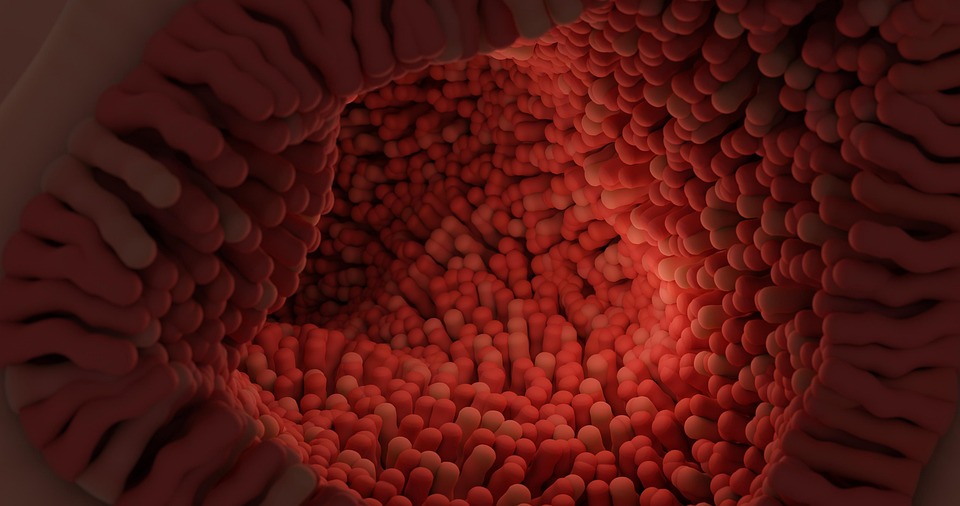Digestive Health Myths Debunked: What You Really Need to Know
Digestive health is a crucial aspect of overall well-being that affects not just the gut but also our skin, mood, energy levels, and more. Despite the wealth of information available, misconceptions about digestive health abound, leading to confusion and potentially harmful practices. This article aims to debunk common myths surrounding digestive health and provide evidence-based insights on how to support a healthy digestive system.
Understanding Digestive Health
Before diving into the myths, it’s essential to understand what digestive health entails. The digestive system is responsible for breaking down food, absorbing nutrients, and eliminating waste. It involves not just the stomach and intestines, but also other organs like the liver and pancreas, all working in concert.
Maintaining a healthy digestive system is essential for:
- Nutrient absorption
- Immune function
- Emotional health
- Detoxification
Given its wide-reaching effects, it is vital to get the facts straight when it comes to digestive health.
Common Digestive Health Myths
Myth 1: Gluten is Unhealthy for Everyone
One of the most pervasive myths surrounding digestive health is that gluten is detrimental to all individuals. Gluten, a protein found in wheat, barley, and rye, has been blamed for various digestive issues.
Debunking the Myth
While gluten can trigger significant problems for those with celiac disease or non-celiac gluten sensitivity, the majority of people can consume gluten without adverse effects. In fact, whole grains that contain gluten provide essential nutrients like fiber, vitamins, and minerals. Eliminating gluten from your diet without medical necessity can lead to nutritional deficiencies and reduce the intake of beneficial whole grains.
Myth 2: You Must Detox Your Gut Regularly
The concept of "detoxing" is popular, with many individuals believing that they must periodically cleanse their digestive system to flush out toxins.
Debunking the Myth
The human body is equipped with its own detoxification systems, primarily the liver and kidneys. These organs effectively filter out toxins, and there is little scientific evidence to support the need for external detox diets or cleanses. Instead, consuming a balanced diet rich in fruits, vegetables, and whole grains will support the body’s natural detoxification processes.
Myth 3: Probiotics Solve All Digestive Issues
Probiotics have gained popularity as a panacea for digestive troubles, leading many to believe that taking them can resolve all digestive ailments.
Debunking the Myth
While probiotics can be beneficial for gut health, particularly following antibiotic use or for specific conditions like irritable bowel syndrome (IBS), they are not a catch-all solution. Individual responses to probiotics can vary widely, and not all strains are effective for every condition. It is essential to consult a healthcare provider for tailored advice on probiotic use.
Myth 4: Dairy Causes Digestive Problems for Everyone
Many people believe that dairy products lead to digestive issues, causing them to unnecessarily eliminate these nutritious foods from their diets.
Debunking the Myth
Although lactose intolerance affects a significant portion of the population, dairy is not inherently harmful to everyone. Many individuals can digest lactose without problems, and dairy products are a rich source of calcium and other essential nutrients. For those who are lactose intolerant, lactose-free dairy options or alternatives can provide similar nutritional benefits.
Myth 5: Fiber Supplements Are Just as Good as Whole Foods
Fiber is crucial for digestive health, leading some to believe that fiber supplements can replace whole foods rich in fiber.
Debunking the Myth
While fiber supplements can help increase fiber intake, they do not provide the array of nutrients and health benefits associated with whole foods. Fruits, vegetables, legumes, and whole grains contain not just fiber but also vitamins, minerals, and antioxidants that supplements cannot replicate. A diet rich in whole foods is essential for optimal digestive health.
Myth 6: Eating Before Bed Causes Weight Gain and Digestive Distress
Many people avoid eating in the evening due to the belief that it leads to weight gain and sleep issues.
Debunking the Myth
While late-night eating can lead to digestive discomfort for some individuals, research shows that the timing of meals is less important than overall caloric balance. The type of food consumed, portion sizes, and individual metabolism matter more. If you opt for lighter, healthier evening snacks, there’s no reason to avoid eating at night entirely.
Myth 7: All Fats are Bad for Digestive Health
The general narrative around fats often labels them as unhealthy, leading to the misconception that consuming any type of fat impairs digestive health.
Debunking the Myth
Healthy fats, such as those found in avocados, nuts, and olive oil, can actually support digestive health. These fats help absorb fat-soluble vitamins and contribute to the structural integrity of cell membranes. Moreover, a moderate intake of healthy fats can help manage weight and reduce inflammation, benefiting overall health.
Myth 8: Carbonated Drinks are Bad for Your Digestion
Many people believe that carbonated beverages lead to bloating and digestive discomfort.
Debunking the Myth
While carbonated drinks can cause bloating for some, others may tolerate them without issues. The carbonation itself isn’t the problem; it’s often the sugar and artificial ingredients that can lead to digestive trouble. Moderation is key, and individuals who enjoy fizzy drinks may not need to avoid them entirely if they do not experience symptoms.
Myth 9: You Only Need to Worry About Digestive Health if You Have Problems
Some individuals believe that as long as they are not experiencing visible digestive issues, they do not need to focus on their digestive health.
Debunking the Myth
Preventive care is essential for digestive health, much like any other aspect of well-being. A healthy digestive system can prevent a range of issues down the line, including constipation, IBS, and even digestive cancers. Incorporating healthful dietary choices and lifestyle habits can mitigate risks before they manifest into problems.
Myth 10: Gut Health is Solely About What You Eat
While diet is undoubtedly important, some people think that gut health is entirely determined by what they consume.
Debunking the Myth
Gut health is influenced by a variety of factors, including genetics, lifestyle, stress levels, and physical activity. Environmental factors, such as exposure to antibiotics and other medications, can also play a significant role. A holistic approach, considering diet as just one part of a larger picture, is crucial for maintaining a healthy gut.
Practical Tips for Supporting Digestive Health
Having debunked these myths, let’s explore evidence-based strategies for supporting digestive health:
-
Eat a Balanced Diet: Aim for a diverse range of foods including fruits, vegetables, whole grains, and lean proteins. This will help ensure you get a wide variety of nutrients and promote the growth of beneficial gut bacteria.
-
Stay Hydrated: Drinking plenty of water is vital for digestion. It helps break down food so that nutrients can be absorbed more effectively. Aim for at least 8 cups of water a day.
-
Manage Stress: Chronic stress can negatively impact digestive health, leading to symptoms like bloating or indigestion. Incorporating stress reduction techniques like yoga, meditation, or deep-breathing exercises can be beneficial.
-
Limit Processed Foods: Highly processed foods often contain additives and preservatives that may disrupt gut health. Focus instead on whole, minimally processed foods.
-
Exercise Regularly: Physical activity supports digestive health by helping food move through the digestive system. Aim for at least 150 minutes of moderate aerobic activity each week.
-
Consume Fermented Foods: Foods rich in probiotics, such as yogurt, kefir, sauerkraut, and kimchi, can support a healthy gut microbiome.
- Consult Healthcare Professionals: If you suspect digestive issues, seek guidance from healthcare providers. They can provide tailored advice, testing, and treatment options based on your specific needs.
Conclusion
Digestive health is an intricate aspect of overall well-being that deserves attention and care. By debunking common myths, we can better understand how to support our digestive systems. With a focus on evidence-based practices and a holistic approach, we can foster not just a healthy gut, but a healthier life overall.
As we move forward, it’s essential to remain critical of the information we consume about digestive health. The facts are out there—let’s make informed choices for our bodies and well-being.
References
- "The impact of diet on gut health" – Nutritional Journal
- "Probiotics: In-depth" – WebMD
- "Understanding gluten intolerance" – Mayo Clinic
- "The liver’s role in detoxification" – American Journal of Gastroenterology
- "Fruits and vegetables: A boon for gut health" – Nature Reviews Gastroenterology & Hepatology
- "Late-night snacking: Myths and facts" – Journal of Nutrition
This article can be expanded with additional sections on the science of gut microbiota, personal stories, or case studies to reach the desired word count. Would you like to explore any specific areas more deeply?


























Add Comment